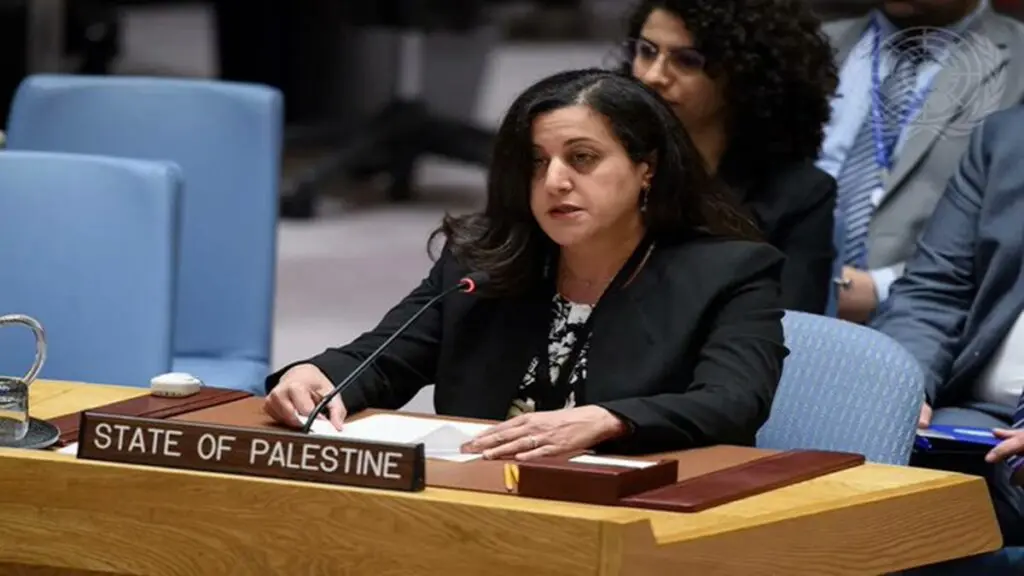
The representative of Palestine to the United Nations, Feda Abdelhady-Nasser | Photo: UN
United Nations, June 15 (RHC)-- "In developing countries, the human cost of these measures is high," said Feda Abdelhady-Nasser. The representative of Palestine to the United Nations, Feda Abdelhady-Nasser, declared this Thursday that coercive measures, including blockades, end the principle of sovereignty, self-determination and international cooperation enshrined in the UN Charter.
Declaring that if the international community truly aspires to cooperate and unity to achieve progress, he pointed out that “then the elimination of unilateral coercive measures not only requires our urgent gaze but also collective measures to abide by the principles of justice and equality that are the cornerstone of this esteemed institution and the post-World War II international legal order.”
“These measures cause serious harm to the most vulnerable populations, exacerbate poverty and impede the development of nations, and in particular developing countries. In doing so, they obstruct our collective efforts to achieve our sustainable development goals, particularly those related to ending poverty, hunger, ensuring good health, well-being and fostering inclusive economic growth,” said Abdelhady-Nasser.
In developing countries, the human cost of these measures is high, she highlighted and stressed that it is not an abstract concept, but a painful reality for hundreds of millions of people around the world. It is estimated that more than one-third of the world's population is affected by these measures, she said, highlighting that “these measures erode the spirit of international cooperation.”
“Our world today is deeply interconnected, a world defined by interdependence. Our world more than ever needs solidarity, security and peace,” said the official. "We must strengthen multilateralism, the role of institutions, and in particular the UN; as well as supporting developing countries. It is a question of human dignity," she insisted.

